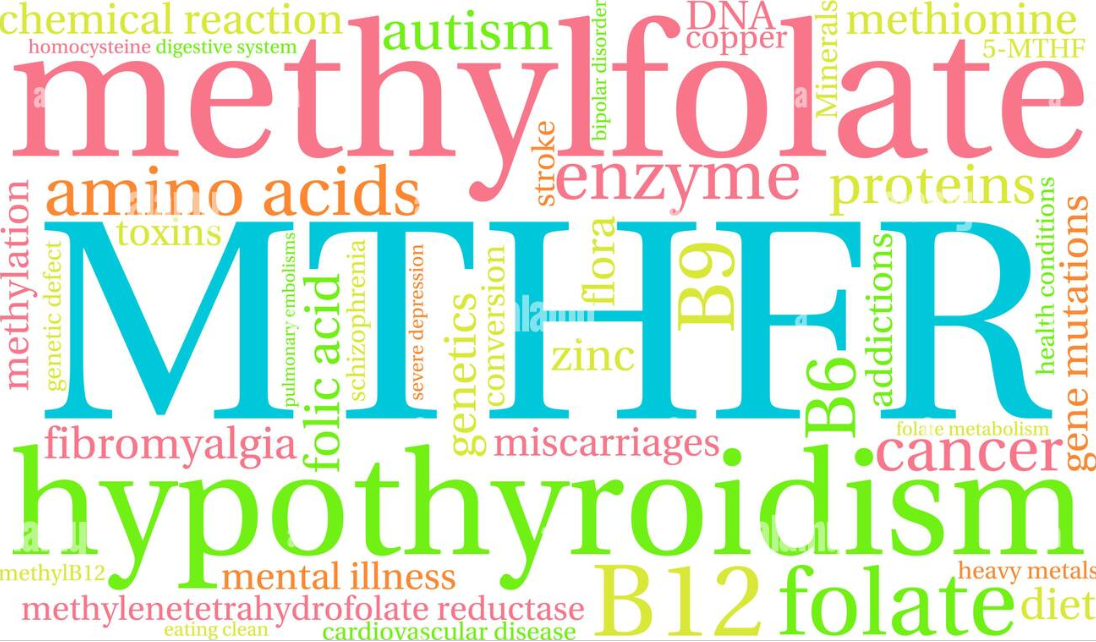Demystifying the MTHFR Gene: What You Need to Know
In recent years, the MTHFR gene has garnered significant attention in the realm of health and wellness. This gene, short for methylenetetrahydrofolate reductase, plays a crucial role in the body's methylation process, which is vital for various functions, including DNA repair, neurotransmitter synthesis, and detoxification.
Understanding the MTHFR gene begins with its function in the methylation cycle. It converts folate (vitamin B9) into its active form, methylfolate, which is essential for numerous biochemical reactions in the body. These reactions are critical for proper cellular function and overall health.
However, certain variations or mutations in the MTHFR gene can impact its function, leading to reduced enzyme activity. The most well-known variants are known as C677T and A1298C. Individuals with these variants may have decreased ability to convert folate into its active form, potentially leading to elevated levels of homocysteine—a marker for cardiovascular disease—and affecting various bodily processes.
The implications of MTHFR gene mutations extend beyond cardiovascular health. Research suggests potential links between MTHFR variants and conditions such as neural tube defects in newborns, pregnancy complications, mental health disorders, chronic diseases, and even certain cancers. However, it's important to note that the relationship between MTHFR variants and these conditions is complex and multifactorial, influenced by genetic, environmental, and lifestyle factors.
Fortunately, understanding your MTHFR status can empower you to make informed decisions about your health. Genetic testing can reveal whether you carry MTHFR variants, allowing you and your healthcare provider to tailor interventions accordingly. For instance, individuals with MTHFR
The MTHFR gene mutation has been associated with several health conditions and factors, although the relationship is complex and multifactorial, influenced by genetics, lifestyle, and environmental factors. Some of the conditions and factors associated with MTHFR gene mutations include:
1. Cardiovascular Disease: MTHFR gene mutations, particularly the C677T variant, have been linked to an increased risk of cardiovascular disease. This is thought to be due to elevated levels of homocysteine, a byproduct of methylation that can damage blood vessels and increase the risk of blood clots and atherosclerosis.
2. Neural Tube Defects: MTHFR gene mutations have been implicated in the development of neural tube defects in newborns, such as spina bifida and anencephaly. These defects occur when the neural tube, which forms the brain and spinal cord, fails to close properly during fetal development.
3. Pregnancy Complications: MTHFR gene mutations, particularly the C677T variant, have been associated with an increased risk of pregnancy complications such as preeclampsia, recurrent miscarriages, and fetal growth restriction. Elevated homocysteine levels and impaired folate metabolism may contribute to these adverse outcomes.
4. Mental Health Disorders: Some studies have suggested a potential link between MTHFR gene mutations and mental health disorders such as depression, anxiety, bipolar disorder, and schizophrenia. Disruptions in methylation pathways and neurotransmitter synthesis may play a role in the development of these conditions.
5. Chronic Diseases: MTHFR gene mutations have been implicated in the development of various chronic diseases, including Alzheimer's disease, Parkinson's disease, autoimmune disorders, and certain cancers. However, the relationship between MTHFR mutations and these conditions is still under investigation, and more research is needed to elucidate the mechanisms involved.
6. Folate Metabolism Disorders: MTHFR gene mutations can impair the body's ability to metabolize folate, leading to lower levels of active folate (methylfolate) and elevated levels of homocysteine. This imbalance in folate metabolism can have wide-ranging effects on cellular function and overall health.
7. Thrombophilia: MTHFR gene mutations, particularly the C677T variant, have been associated with an increased risk of thrombophilia, a condition characterized by abnormal blood clotting. Elevated homocysteine levels and impaired methylation may contribute to the formation of blood clots, leading to conditions such as deep vein thrombosis and pulmonary embolism.
It's important to note that while MTHFR gene mutations may increase the risk of certain health conditions, they are just one piece of the puzzle. Other genetic, environmental, and lifestyle factors also play a significant role in determining an individual's health outcomes. Additionally, genetic testing for MTHFR mutations can provide valuable information for personalized health management and intervention strategies.
